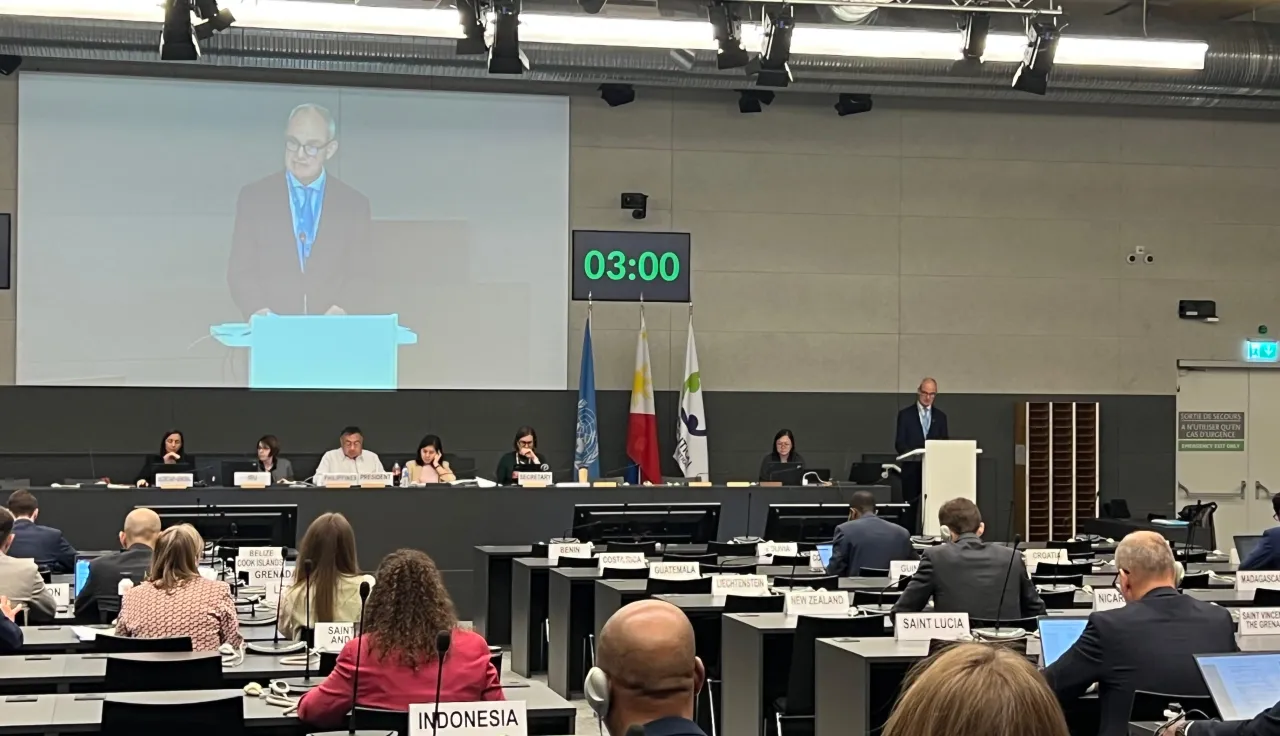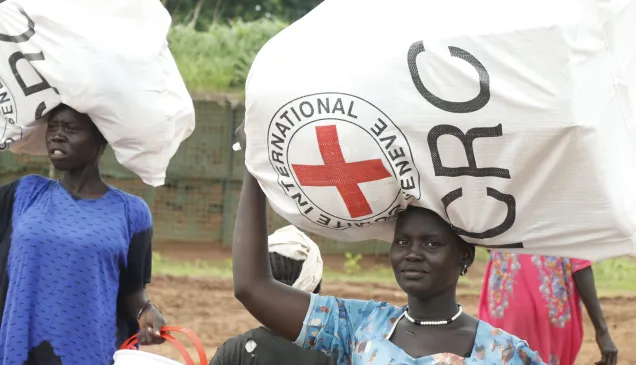Mr. President, Excellencies, Ladies and Gentlemen,
As we gather today for the 13th Meeting of States Parties to the Convention on Cluster Munitions, the international community must urgently take decisive steps to better protect civilians in armed conflict. This includes strengthening the prohibition – and the stigma – against any use of cluster munitions, by anyone, under any circumstances.
A number of concerns require the attention of the Convention’s community, notwithstanding significant progress in various areas: 111 States have renounced the use of cluster munitions. The ICRC congratulates Vanuatu on submitting its instrument of ratification two weeks ago.
Additionally, huge quantities of stockpiles have been destroyed since the Convention was adopted. Over the last two decades, 42 States Parties have destroyed all the cluster munition stocks that they had declared, amounting to nearly 1.5 million cluster munitions and 180 million sub-munitions.
Yet, these deadly weapons continue to kill and maim indiscriminately. This concern must be addressed while cluster munitions continue to be produced, transferred and used. These weapons are not an abstract or theoretical threat. Their impact is very real for each victim, each survivor and their loved ones. According to the Cluster Munition Monitor report, children account for close to half of the civilian casualties. Each case represents a life, a family, a community forever impacted.
A second concern is the stalling rate of accessions to this Convention. Despite its clear humanitarian aims, only three states have joined the Convention since 2020. Now is a time to discuss and take further steps toward universal adherence.
A third challenge is that a State Party has regrettably withdrawn from the Convention. This is a deeply worrying manifestation of the idea that international humanitarian law (IHL) treaties, such as the Convention on Cluster Munitions, would be instruments to be adopted in times of peace and stability, but abandoned when confronted with an elevated security threat. This is fundamentally at odds with the entire notion and aim of international humanitarian law: it is precisely in times of armed conflict that IHL is designed to apply and to protect civilians.
All the reasons that led to the negotiations and adoption of this Convention remain valid to date. The appalling human cost of cluster munitions is no way diminished by a changing security environment.
Mr. President, ladies and gentlemen,
This 13th Meeting of States Parties is a moment to take stock, but also action. Today you must determine the course of our future. You can do so, first, by not allowing any unravelling of international humanitarian law – a body of law so painstakingly built over decades on the devastating experience of preceding wars.
Second, you can do so by reinforcing the stigma associated with cluster munitions and denouncing any conduct that departs from the humanitarian norms of the Convention, including by strongly reaffirming the unequivocal condemnation of any use of cluster munitions by anyone, anywhere.
Finally, you can do so by calling on and using every avenue to convince States not yet party to join the Convention and fully adhere to its provisions without delay.
Maintaining and strengthening IHL is a collective responsibility of all states. It serves the national interests of each and every state – and humanity as a whole. Respect for IHL must be a political priority, especially in times of increasing polarization, insecurity and armed conflicts.
To conclude, let me remind that seventeen years ago, as we hailed the adoption of this Convention in Oslo, the then-ICRC President declared: “the road to Oslo does not end in Oslo. It ends when the use of these weapons has ceased, when stockpiles are eliminated, when contaminated areas have been cleared, and when victims have been helped to rebuild their lives.” Today we must collectively re-mobilize to this end. We count on your unwavering commitment to reaffirm and safeguard international humanitarian law. We remain more committed than ever to assist states in this regard.
Thank you.
Related articles and statements
- Reneging on cluster munitions ban endangers civilian lives and erodes IHL
- ICRC Vice-President Dr Gilles Carbonnier: The international community must urgently take deliberate steps and lead towards effectively protecting civilians
- It is up to States Parties and the broader Convention community to defend and promote the norms of the Convention on Cluster Munitions




